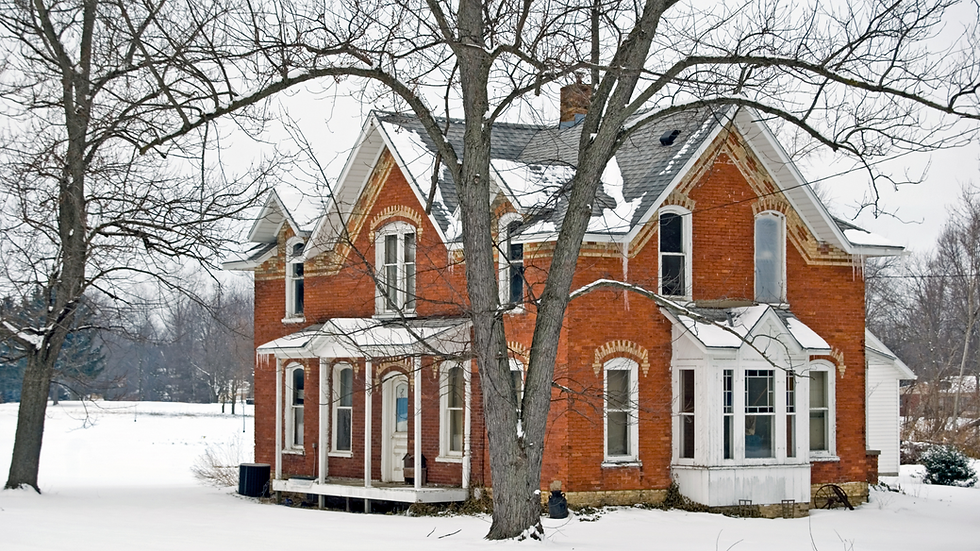When to Repair vs. Replace Your Plumbing Fixtures
- daltonjodrey
- Jan 8, 2025
- 3 min read
Updated: Sep 2, 2025
Plumbing issues are a part of homeownership, but knowing when to repair vs. replace plumbing fixtures can be a real challenge. Whether you’re dealing with a leaky faucet or outdated pipes, making the right decision can save you time, money, and frustration.

In this guide, we’ll help homeowners in Nova Scotia navigate this tricky decision: Should you repair or replace your plumbing?
Signs It's Time to Replace Your Plumbing Fixtures
Frequent Breakdowns If your plumbing fixtures are constantly breaking down, it may be time to replace them. A faucet that needs repair every few months or a toilet that frequently malfunctions can lead to costly repairs over time. In areas with harsh weather, plumbing fixtures can wear out more quickly, making it more important to invest in replacements that will last longer.
Outdated Materials Older plumbing systems, especially those made from materials like lead or galvanized steel, pose serious risks to your health. If your home was built before the 1980s, you may be dealing with dangerous plumbing materials. Lead pipes can leach harmful toxins into your water supply, so it's crucial to replace them to ensure your family’s safety.
Cracked or Damaged Fixtures If you notice visible cracks in your plumbing fixtures—like your toilet, sink, or shower—repairing them might not be enough. Cracked porcelain or broken pipes often require full replacement to avoid water damage or leakage. For example, if your toilet’s porcelain is cracked, it’s an emergency situation and needs to be replaced immediately.
Inefficient or Outdated Fixtures Plumbing technology has come a long way. If your fixtures are more than 10-15 years old, it might be time for an upgrade. Modern water-efficient fixtures can save you money on water bills while providing better performance. With water conservation being a priority for many, upgrading to energy-efficient plumbing systems can help reduce your household’s environmental footprint.
Corroded Pipes or Fixtures Corrosion in pipes or fixtures can lead to leaks, low water pressure, and poor performance. If you notice that your water has a strange taste, odor, or discoloration, your pipes could be rusting. It’s important to address this issue before it escalates into a bigger problem, such as flooding or water contamination. Replacing old, corroded pipes is essential for maintaining your plumbing system’s efficiency.
When to Repair Your Plumbing Fixtures
Minor Leaks or Drips If you have a slow drip from a faucet or a small leak, a repair might be all you need. Small leaks can be easily fixed with the replacement of washers or gaskets, and if the issue is isolated, repairing it is cost-effective. However, if the leak keeps coming back, it may signal deeper issues.
Short-Term Repairs If you plan to sell your home soon or you’re not planning to stay for long, repairing your plumbing fixtures can buy you some time before a full replacement is needed. Temporary fixes can be a practical solution for those who need an immediate fix but don't want to invest in a full replacement just yet.
Newer Fixtures That Are Still Under Warranty If you have relatively new plumbing fixtures that are still under warranty, a repair might be the best option. Many warranties cover minor repairs, so it's worth checking before deciding on a replacement. This is especially relevant for homeowners who want to get the most value out of their recent plumbing installations.
How to Decide: Repair or Replace?
Here are some key considerations to help you make the right decision:
Age of the Fixture: Older fixtures are more likely to need replacement, especially if they’ve been repaired multiple times.
Frequency of Issues: If a fixture is constantly causing problems, it’s more cost-effective in the long run to replace it.
Cost of Repair vs. Replacement: Evaluate the cost of repairs and compare it to the cost of replacing the fixture. Sometimes, replacing an old fixture is more cost-effective in the long term.
Potential for Future Problems: If you expect more issues in the future, replacing the fixture now may save you the hassle of ongoing repairs.
Conclusion
Knowing when to repair or replace your plumbing fixtures can be a tough decision, but it's essential for maintaining the efficiency and safety of your home. Whether you’re dealing with leaks, outdated pipes, or inefficient fixtures, it’s important to consider the long-term benefits of replacement. Don't hesitate to contact a professional plumber who can guide you in making the best choice for your home. In the end, upgrading your plumbing may be an investment that pays off in comfort, performance, and energy savings.
For expert plumbing services, contact Dalton Jodrey Plumbing & Heating Ltd. We offer reliable advice on whether to repair or replace your plumbing fixtures, ensuring you make the right choice for your home.




Comments